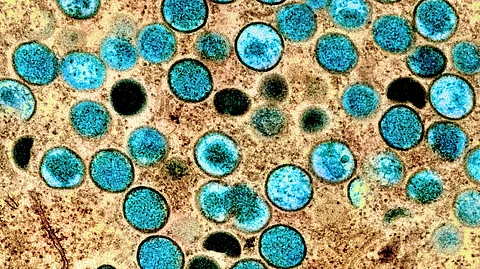As the treatment progressed, Halassy reportedly experienced a significant reduction in tumor size, with the mass detaching from surrounding tissues, thereby making surgical removal easier. An analysis conducted after the tumor’s surgical removal revealed a strong infiltration of immune cells, specifically lymphocytes, suggesting that the OVT had successfully triggered an immune response against the cancer cells. Post-surgery, Halassy underwent a year-long course of trastuzumab, an anticancer drug. She has been cancer-free for four years following this unconventional treatment.
Despite her success, Halassy faced numerous hurdles in getting her case published. Over a dozen scientific journals rejected her paper, citing ethical concerns. The primary issue, as noted by Jacob Sherkow, a legal expert at the University of Illinois Urbana-Champaign, was not the act of self-experimentation itself but the potential implications of publicizing such a case. There are fears that this could encourage other cancer patients to attempt similar unverified treatments, potentially leading them away from proven conventional therapies. Sherkow emphasized that while self-experimentation should not be a first-line approach, it remains important to preserve any valuable scientific knowledge it may yield.
Halassy’s decision to self-treat aligns her with a historical lineage of scientists who have engaged in self-experimentation. This practice has long been regarded with both admiration and skepticism. However, Halassy herself stressed that her choice to proceed with OVT was based on her specialized knowledge in virology rather than expertise in cancer treatment. She acknowledged that her bold move to self-medicate might have been a controversial one, underscoring the challenges she faced in getting her work published: “It took a brave editor to publish the report,” Halassy said.
OVT is still an emerging field in cancer therapy, designed to leverage viruses to target cancer cells while activating the immune system to enhance the body’s natural defenses. Although this treatment approach has gained approval for metastatic melanoma in the form of T-VEC in the United States, it has yet to secure approval for breast cancer or other early-stage cancers.
Stephen Russell, a specialist in oncolytic virotherapy, expressed both intrigue and caution regarding Halassy’s case. He acknowledged that the viral injections likely contributed to the tumor shrinkage but downplayed its significance as a groundbreaking advancement, since efforts to use OVT for earlier-stage cancers are already underway. Russell noted that the sequential use of two different viruses was a novel aspect of Halassy’s approach but argued that conclusions could not be definitively drawn from a single patient case.
The debate over Halassy’s case highlights the ethical gray areas surrounding self-experimentation in medical research. While her innovative approach may offer insights into new cancer therapies, the risks of encouraging unproven treatments among the general population remain a significant concern.
References:
"Revolutionizing Cancer Treatment with Oncolytic Virus Therapy." Nature, November 2024. Accessed November 27, 2024. https://www.nature.com/articles/d41586-024-03647-0.
"Oncolytic Virus Therapy." Cancer Research Institute. Accessed November 27, 2024. https://www.cancerresearch.org/treatment-types/oncolytic-virus-therapy.
(Input from various sources)
(Rehash/Ankur Deka/MSM)


